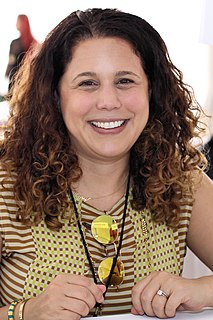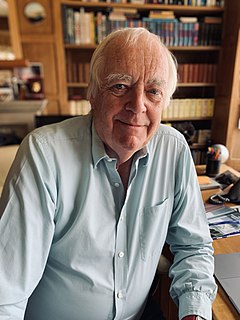A Quote by Debbie Macomber
I'm an optimist and my heroines seem to be that way, too. It's too much work to be cynical and distrusting. That doesn't mean I create perfect stories and perfect people, however. What this means is that my stories are resolved in a manner that leaves the reader with a feeling of hope and happy expectation . . . and wanting to reach for another one of my books.
Related Quotes
The world is changing, but I am not changing with it. There is no e-reader or Kindle in my future. My philosophy is simple: Certain things are perfect the way they are. The sky, the Pacific Ocean, procreation and the Goldberg Variations all fit this bill, and so do books. Books are sublimely visceral, emotionally evocative objects that constitute a perfect delivery systemBooks that we can touch; books that we can smell; books that we can depend on. Books that make us believe, for however short a time, that we shall all live happily ever after.
All stories are true,” Skarpi said. “But this one really happened, if that’s what you mean.” He took another slow drink, then smiled again, his bright eyes dancing. “More or less. You have to be a bit of a liar to tell a story the right way. Too much truth confuses the facts. Too much honesty makes you sound insincere.
I think you find stories with fresh perspectives, and there can be a danger in the opposite way when you start getting too cynical and things just don't start seeming like stories, and things don't seem exciting anymore. It's like, 'Yep, this is my fourth caucus, and I know everybody and know everything and I am writing just to impress my friends.'
The stories that confirm that bigger story are brought in and easily digested. But there's another set of stories that are always there, which do not confirm, but which complicate and contradict what we think we already know. And I'm always attracted to that. There doesn't seem to be much of a market for it. Translated books rarely get reviewed in the press. Books or poems or works of art that don't seem to have a corresponding style or figure or theme, obviously they're hard to digest.
Writing stories, adopting other characters, making up fantastic stories and tales, this is a way of perhaps enhancing who I am. Writing stories takes a commonplace old life and makes it all somehow more interesting. And hopefully I can do that in a way that touches a lot of people in their lives, too.


































